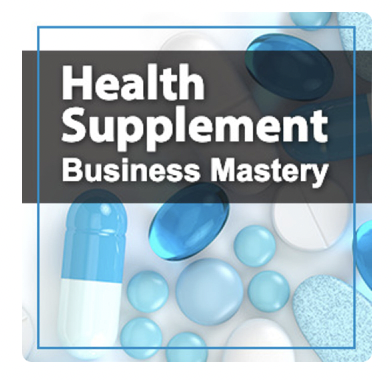Robert F. Kennedy Jr.’s appointment as Secretary of Health and Human Services under the Trump administration has ignited significant interest in the dietary supplement industry.
Kennedy has criticized the FDA’s regulation of supplements, advocating for reduced oversight and promoting alternative health approaches.
This stance has emboldened supplement manufacturers to seek expanded health claims for their products and push for government and insurance programs to cover supplements, potentially elevating them to the status of FDA-approved pharmaceuticals.
Kennedy’s advocacy aligns with a broader “health freedom” movement that emphasizes personal choice and skepticism toward conventional medicine.
This movement has found resonance among certain political groups and has been amplified by influencers promoting self-directed health solutions.
Marketing Implications of RFK on Supplements for the Next Four Years
The evolving regulatory landscape presents both opportunities and challenges for supplement marketers:
- Expanded Claims: With potential regulatory relaxation, companies might make more assertive health claims, appealing to consumers seeking alternative health solutions.
- Broadened Access: Efforts to include supplements in government and insurance programs could expand the market, making supplements more accessible to a wider audience.
- Targeted Messaging: Aligning marketing strategies with the “health freedom” narrative can attract consumers who value personal choice and are skeptical of traditional healthcare systems.
- Influencer Partnerships: Collaborating with influencers who advocate for alternative health can enhance brand visibility and credibility among target demographics.
However, marketers must navigate this environment carefully, ensuring that claims are substantiated to maintain consumer trust and avoid potential backlash.
The current shift presents a pivotal moment for the supplement industry to redefine its role in public health.
By embracing transparency, investing in research, and prioritizing consumer education, companies can position themselves as credible players in the healthcare landscape.
This approach not only capitalizes on the current regulatory climate but also builds a foundation for sustainable growth and consumer trust in the long term.
Consumer Trust Is at a Crossroads
As regulatory barriers potentially loosen under the new political climate, supplement companies may gain more freedom in their marketing but with that freedom comes responsibility.
If consumers sense that profit is being prioritized over their wellbeing, trust can erode quickly.
On the other hand, brands that lead with transparency, show clear sourcing and manufacturing standards, and back their claims with science could emerge as trusted authorities in a crowded market.
In an era where skepticism of institutions runs high, trust must be earned and that’s now both a risk and an unprecedented opportunity.
Belief in Health Solutions Outside the System
The growing “health freedom” movement reflects a deeper consumer belief.
Many Americans are disillusioned with traditional healthcare and are looking for solutions they can control.
This mindset shift means consumers aren’t just buying supplements they’re buying autonomy. Marketers who understand this can position their products not just as health aids, but as tools for empowerment.
The brands that resonate most will be those that speak to this desire for agency and self-reliance, especially among demographics that feel underserved or unheard by conventional medicine.
Desire for Health Is Driving a New Era of Wellness Spending
Consumers are no longer reacting to illness.
They’re proactively seeking to feel better, live longer, and perform at higher levels.
The supplement industry is becoming a direct outlet for this rising desire.
With public attention turning to ingredients like magnesium, berberine, and adaptogens, consumers are willing to invest in products that promise vitality, energy, and longevity.
This presents marketers with a powerful lens. Position products not just as remedies, but as part of a larger story of optimal living one where the customer is the hero reclaiming their health.
Hope Is the Hidden Engine of the Supplement Boom
More than anything else, supplements sell hope. Hope for wellness, for prevention, for control in a world that often feels uncertain.
With RFK Jr.’s rise and a shifting regulatory climate, many consumers feel newly validated in their alternative health choices. For marketers, this means hope must be handled with care.
It’s not just about promising a better tomorrow,i t’s about creating realistic, emotionally resonant stories that make people believe it’s within reach.
The brands that endure will be the ones that uplift, not overpromise; that inspire, not manipulate; and that meet people where they are, while helping them envision where they could go.
Discover the 3 funnels that can help your health supplement business succeed.

Listen to the Health Supplement Business Mastery Podcast for for dietary supplement entrepreneurs and marketers.
Discover the 3 funnels that can help your health supplement business succeed.

Listen to the Health Supplement Business Mastery Podcast for for dietary supplement entrepreneurs and marketers.



